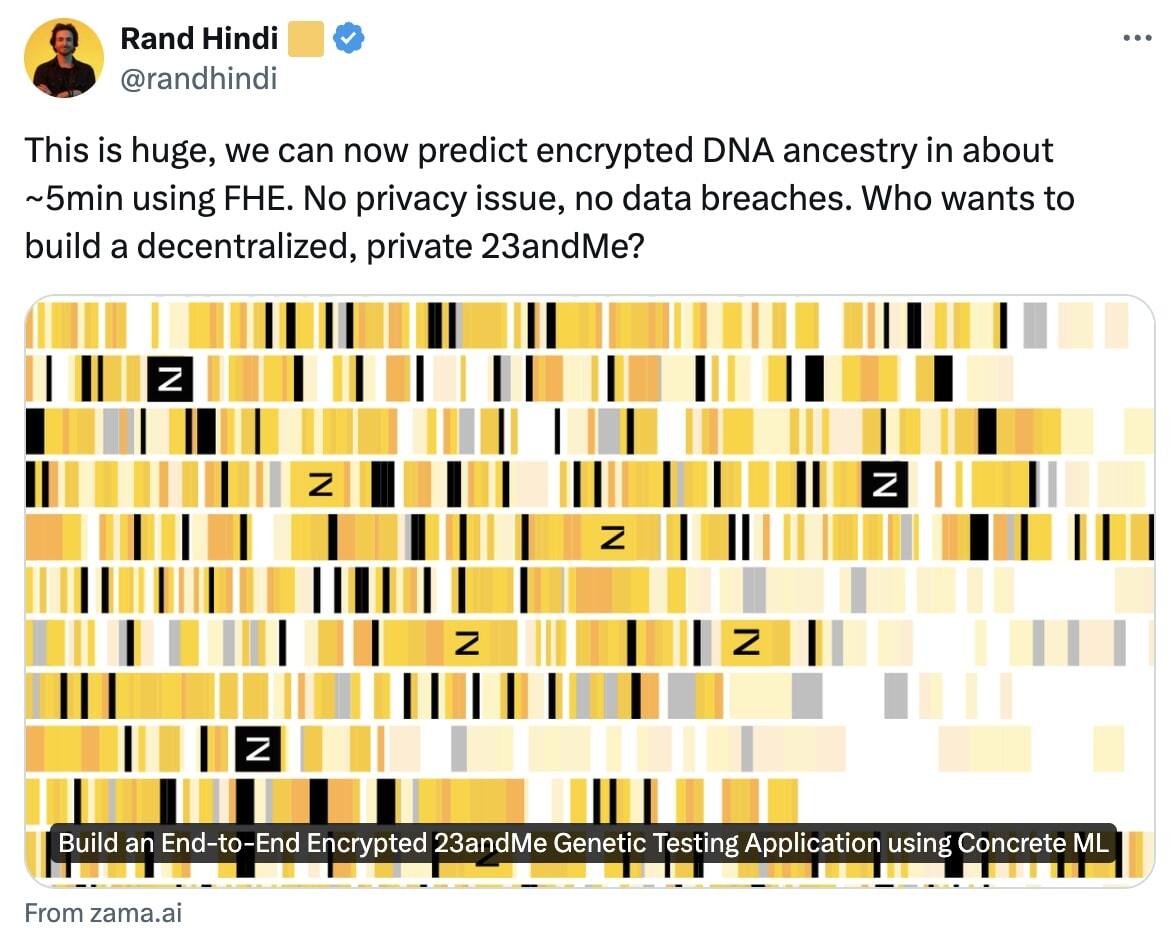This week, we published the longest and most in-depth interview with a computing startup so far, based on the first-ever Future of Computing podcast, recorded with the CEO, Sebastian Weidt, at this year's Latitude59 conference:
Universal Quantum: Shaping the Future of Fully Scalable Trapped Ion Quantum Computers
Universal Quantum was founded by Sebastian Weidt and Winfried Hensinger in late 2018 to build fully scalable, universal quantum computers.
Using well-established microwave and microchip technology, it uses trapped ion qubits at a more accessible temperature of -200°C compared to other quantum computers that require near absolute zero temperatures and extensive cooling. In addition, its unique modular approach with proprietary interconnects gives it a promising shot to scale quantum computers to millions of qubits.
Universal Quantum raised a $4.5 million seed round in 2020 from Hoxton Ventures, Village Global, Propagator Ventures, Luminous Ventures, and 7percent Ventures, extended by Quantum Exponential in 2022.
Future of Computing News
⚛️ Quantum interconnects going full-stack: Quandela and Welinq Partner to Create Custom Quantum Interconnects for Photonic Quantum Computing (HPCWire)
⚛️ Quantinuum nearly doubles its qubit number and: Breaks ‘Quantum Supremacy’ Record Set by Google (Gizmodo)
🤖 Q* rebranded as Strawberry: OpenAI's new 'Project Strawberry' could give ChatGPT more freedom to search the web and solve complex problems (Tom’s Guide)
🤖 Opportunity for European multi-modal AI startups: Meta won't offer future multimodal AI models in EU (Axios)
🤖 Two new open-source models from Mistral: MathΣtral and Codestral Mamba
🤖 Not just fast but also accurate: Groq’s open-source Llama AI model tops leaderboard, outperforming GPT-4o and Claude in function calling (VentureBeat)
🤖 Will LLMs keep improving if we throw more compute at them? Microsoft CTO Kevin Scott thinks LLM “scaling laws” will hold despite criticism (Ars Technica)
🦾 Possibly, a game changer to compile CUDA applications natively for AMD GPUs: SCALE by Spectral Compute (Scale Lang)
Funding News
🤖🌐Brussels-based Soda snaps €12.9 million to expand its data quality platform in the US (EU Startups)
🇪🇺 Lots of cool computing startups made it into the latest EIC accelerator batch and received grant and equity funding, among others SPHERICAL, QuiX Quantum, and Cerabyte whom we interviewed previously
In addition, also Welinq, LightSolver, FononTech, QC Design, RAAAM Memory Technologies made it in and received funding 🥳
Deep Dive: We’re Is the Quantum Utility?
Another week, another quantum report—this time an update by BCG on their 2021 report, as covered in an article by HPCWire.
It’s still fairly optimistic that quantum computing will create ‘$450 billion to $850 billion of economic value’ down the road—for comparison, the entire enterprise software market was about $240B in 2022 (source: Statista)
But the article also says:
“The NISQ era has not lived up to BCG’s expectations because of two factors: technical hurdles in hardware development are proving tough to overcome and competition from classical computing has been fiercer than expected.”
In other words, developing quantum computers is really hard, and classical computers are already really good—and they’re advancing too, so NISQ quantum computers play catch-up with a moving frontier.
The article continues:
“… However, by leveraging analog methodologies, quantum machines can still deliver tangible value, especially in materials and chemicals simulations, ranging from $100 million to $500 million a year, during the NISQ era.”
That would be our best bet as well—quantum computers may help to develop a new material or drug that otherwise wouldn’t have been developed, and economic value will come from licensing or sale of that material or drug.
Good Reads
This could be super cool: “One challenge of the Zama Bounty Program Season 5 was to create an encrypted version of 23andMe (or other DNA testing platform) using Fully Homomorphic Encryption (FHE)”
Learn more about ZAMA from our recent interview: Shaping the Future of Homomorphic Encryption for Machine Learning
Andrej Karpathy shared on X, how the costs to train a GPT-2-like language model have come down a 100x over the past 5 years.
“AI progress from Chinese labs has received significantly less attention than the model race between the biggest US labs. Commentary tends to be written from the standpoint of ‘who’s winning?’ and ‘are sanctions backfiring?’ and look to find a one-word answer.”
Check out the Quantum Pirates substack for a great overview and analysis of recent quantum computing news.
“Vaire’s goal is to produce an AI processor or accelerator that is approaching 4,000 times more energy efficient than similar devices implemented classically.”
How did you like this newsletter edition?
Thank you for being one of the 596 subscribers to this week's edition 🤗
If you like this newsletter, please forward it to a friend or two who can subscribe here




